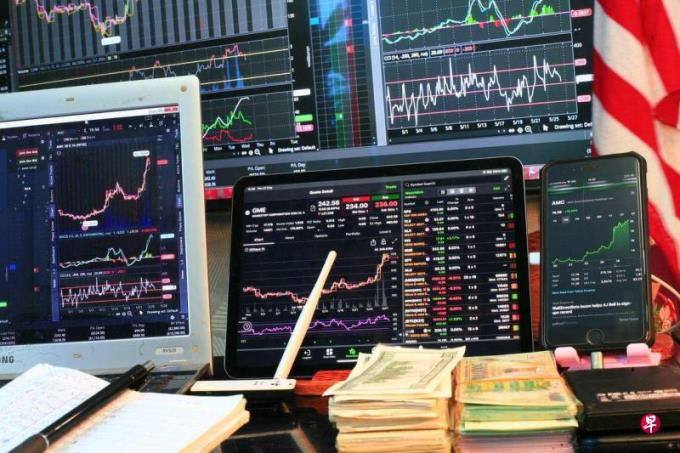
Although the financial system has a certain impact on economic development, it is not a necessary condition for scientific and technological innovation and even the industrial revolution.The first and second industrial revolution in history occurred in a relatively backward financial environment, which indicates that the occurrence of scientific and technological innovation and even the industrial revolution does not depend on the development of finance.
The China Central Financial Work Conference held from October 30 to 31 last year clearly emphasized that it is necessary to accelerate the construction of a strong financial country.As an interpretation of policies, Professor Liu Yuanchun, president of Shanghai University of Finance and Economics, published such a high argument in an interview with the media.He said: "The construction of a strong country and a manufacturing power requires finance to promote it. Without a strong financial system, it is impossible to bred modern technology and modern industries.Important tools for the comprehensive transformation of the power of technology and manufacturing to manufacture. "
To be honest, Professor Liu's remarks are not a new point of view.In the early years, Chen Zhiwu, a professor of lecturer at the University of Hong Kong, mentioned this view in the logic of finance. He said: First, finance can help scientific and technological innovation; 2. Finance is a necessary element for the rise of great powers.Essence
First Industrial Revolution
Unfortunately, this view is obviously unable to withstand historical torture: If this view is correct, history should be rewritten to this: the first industrial revolution should first occur in the Netherlands instead of Britain.The reason is simple. Although the early buds of capitalism started from the Renaissance Italian period, the real capitalism was first completed in the Netherlands in the middle of the 17th century.Although the Netherlands is just a small projectile, it is the first country in the world to "give the businessman to fully political rights."It is a mix of republican democracy, and actual political power is held in the hands of businessmen and intellectual elites.In such a country without a king, emphasizing republics and democracy, the first financial center in the world was born.
Historians' consistent opinions are that the citizens of the Netherlands are the creators of the modern commodity economic system. They organically unify banks, stock exchanges, credit and limited liability companies into a mutually interactive financial and business system.This brings explosive wealth growth.It is also based on its financial hegemony that the Netherlands has become the world's hegemony for a time, expanding around, and colonies spread throughout Asia, Africa and America.
On the other hand, the United Kingdom in the same period is also rising. In addition to military, there is still a gap between the Netherlands and the Netherlands in all aspects, especially in terms of finance.This can be visible from the use of financial tools in Tulip Bubbles and South Sea Bubbles in the Netherlands.
By combing the history of finance, it is not difficult to find that the tulip foam that broke out from 1630 to 1637 has rich financial tools.At that time, investors could buy naked, selling naked, short -term trading, investing in futures, and a complete futures market.
Even more, in order to reduce the threshold for buying and selling, some traders divide a ball into one third of the stems, allowing traders to buy and sell a quarter of the tulip stems.In contrast, the British South China Sea bubble between 1711 and 1720, although it was nearly a century later than the Dutch tulip bubble, these financial tools were lacking.In addition, the Netherlands had a perfect stock exchange in the Netherlands century ago, and the British one hundred years later can only gather at random transactions by the road.
The problem comes. In the 17th and 18th centuries, Britain's finance was far behind the Netherlands. By 1720, the situation was not better but worse: due to the bubble bill, British finance was even in "martial law martial law."Status -In order to prevent the speculative bubble from getting out of control, the British Parliament passed the English Bubble Act in June 1720.The bill prohibits "united by the company's entity without the authorized by the parliament or the king, and the share can be transferred and transferred."
From then on, the bill has been restricting the development of the British securities market.By 1741, the bill was not only suitable for Britain, but even in the British colonies in the UK.It was not until 1825 that the bill was proposed to be removed by the then Minister of Commerce Huskisson and was eventually replaced by the Trading Corporation Law.In other words, the short -term madness caused by the South China Sea bubble eventually caused Britain to recruit hundreds of years of financial martial law.
But one of the facts that Liu Yuanchun and Chen Zhiwu are denying is that the first industrial revolution was bred and occurred in these 100 years: 1733 John Kais invented the shuttle;Sri Lang invented the "Jenny" spinning machine; in 1769 James Watt improved the steam engine; in 1785, Edmont Martres invented the power weaving machine ...
The major leap from manual labor caused by this series of technological changes to the transformation of power machine production constitutes the first industrial revolution.As far as the development of human society is concerned, it is no less than the second industrial revolution led by the United States and the main content of electrical content.It is this revolution that we have entered an era of free trade; it is this revolution that has caused changes in the form of production organizations, so that the use of machine -based factory systems replaced the traditional manual workshop; it is this game; it is this game; it is this game.The revolution brought the transfer of urbanization and population to the city; it was this revolution that brought great changes to people's daily life and ideas; it was this revolution that led to a leap in productivity; it was this revolutionary strengtheningThe connection between the world has changed the appearance of the world; it is this revolution that objectively spreads advanced production technology and production methods, and violently impacted the old system and old thoughts of traditional feudal society.
Second Industrial Revolution
The first industrial revolution is not unique, as is the second industrial revolution.This industrial revolution still first occurred in Germany, a country where finance was not developed.In 1866, Siemens, located in Hannowei, made a generator.As a result, electrical start to replace steam engines, becoming a new energy supplement and replacement of steam engines.Subsequently, electric lamps, trams, and film screenings came out one after another, and humans entered the "electrical era".In other words, the second industrial revolution was created by Germany at all.
What is the situation in Germany at that time?At that time, Germany was in the eve of reunification and the beginning of reunification. The capital market was far from developed by Britain and the United States at that time.At that time, the entire German region adopted a series of economic policy promotion joint -stock companies, but it was quite morally characterized that the capital sources of many joint -stock companies at that time were not raised from the public, but subscribed to stocks through banks.This laid the foundation for the special relationship between the German securities market and the bank.
More importantly, the entire German financial system is very cautious, mainly manifested in the supervision of financial institutions in the German financial regulatory authorities, so that the return on investment in German financial institutions is relatively low in the entire world.EssenceIt is thanks to this prudent financial system that Germany not only avoids the situation of excessive return on the financial industry, maintains the stability of the financial industry, but also allows funds and talents to gradually flow into enterprises and real economies, promote the real economyHealthy development.
I think this is not only the root cause of the second industrial revolution in Germany, but also the root cause of the British in the first industrial revolution under the financial martial law -the bubble bill of that year -there is no deformity without deformityThe capital market makes the geniuses of industry and commerce exempt from being strangled: people will not be virtual in the fantasy of wealth from the sky, and they will not fall into crazy for a long time without being able to extricate themselves. The entire country has no restless people, and everyone is working hard.All this drives a lot of social savings and talents,Flows into enterprises and real economies.
In summary, it can also be seen: First, although the financial system has a certain impact on economic development, it is not a necessary condition for scientific and technological innovation and even the industrial revolution.The first and second industrial revolution in history occurred in a relatively backward financial environment, which indicates that the occurrence of scientific and technological innovation and even the industrial revolution does not depend on the development of finance.Second, the financial system is more to serve the real economy, not lead or dominate the change of the entire economy.Therefore, when understanding the cause of science and technology innovation, we need to think more about the impact and interaction of various factors more comprehensive and in -depth.


